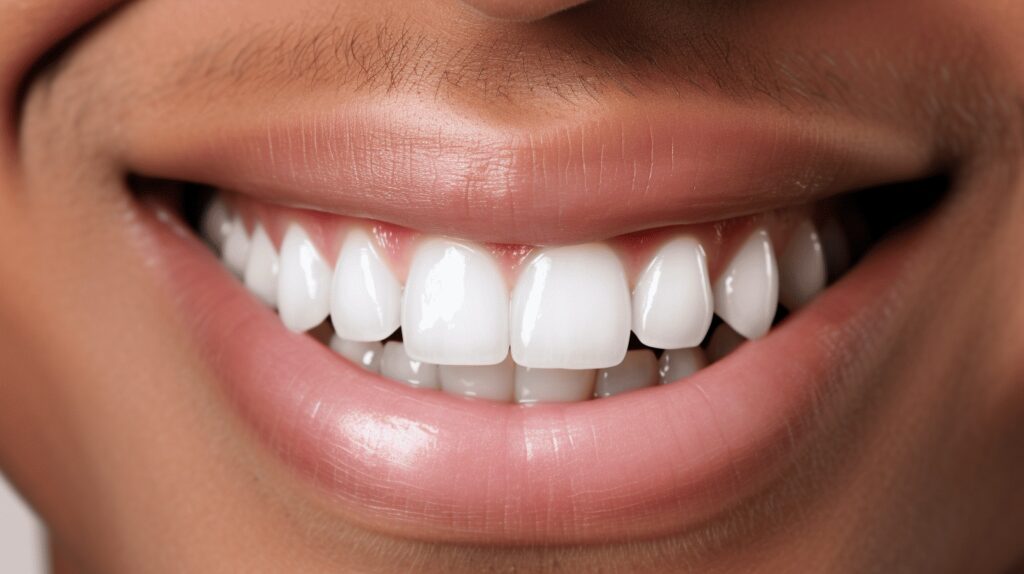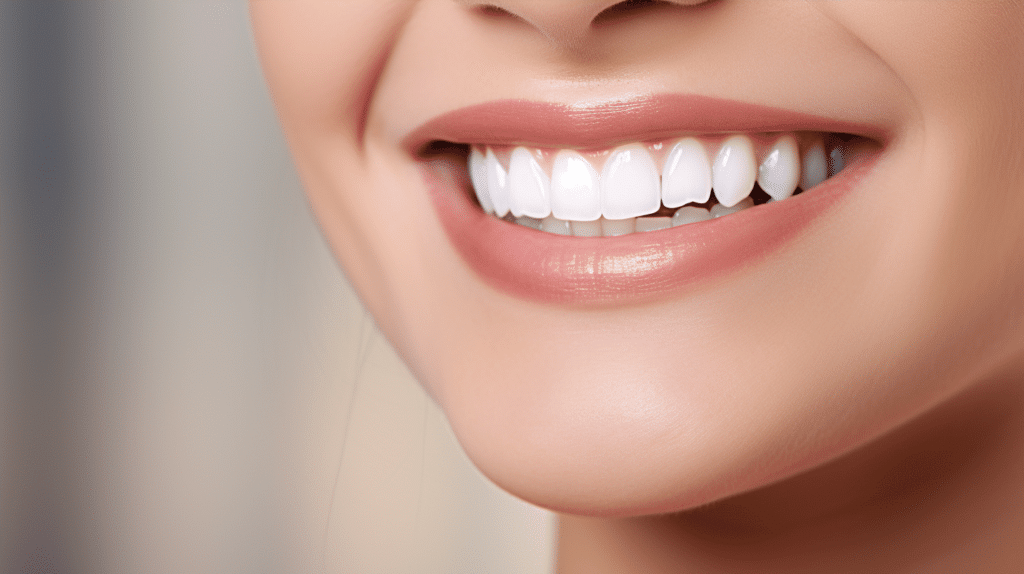You may be here because of that sharp, throbbing pain from deep within your mouth, or maybe there’s a sudden, sensitive spot on your gum that’s making it impossible for you to even take a sip of your morning coffee.
Dental emergencies, like a dental abscess, can appear out of the blue, bringing discomfort and a pressing need for instant care.
We know you’re probably not a dental professional, but that’s okay–we’re here to help!
In this article, we will equip you with all the necessary knowledge on how to handle a dental abscess, from understanding it to seeking professional help, and even how to prevent such a situation in the future.
So buckle up, and let’s kick that painful abscess to the curb! Remember, the key to dental health is knowledge and prompt action. 🦷💪
Table of Contents
Understanding Dental Abscess
If we’ve ever faced a shooting pain in our teeth while eating or drinking, chances are we’ve encountered what dental professionals call a ‘dental abscess.’
🦷 It’s a common, yet often ignored, dental issue. In layman’s terms, a dental abscess is nothing but a pocket of pus resulting from a bacterial infection.
Ignoring this gnawing problem can lead to severe dental conditions, some of which may even require surgery.
Definition and Causes
A dental abscess, or what we casually refer to as tooth infection, is a pus-filled swelling caused by a bacterial infection.
.
Other factors contributing to dental abscess include:
- Deep dental cavities 🕳️
- Cracked or broken tooth 🦷💔
- Complications following oral surgery 💉
- Weak immune system that allows bacteria to infect the tooth 🌡️💊
As we can see, the causes are many and often interconnected.
For instance, a cracked tooth can lead to deep dental cavities, which then become breeding grounds for bacteria, particularly if our oral health isn’t up to par.
Signs and Symptoms
How do we know if we have a dental abscess?
Well, the signs and symptoms are pretty explicit.
Right off the bat, we’ll feel a throbbing, severe toothache.😫 The pain usually starts abruptly and gradually intensifies over the next few hours or days.
Here are some other signs to look out for:
- Sensitivity to hot and cold food or drinks 🍵🍦
- Swelling and redness in the gums 🦷
- A foul taste in the mouth that seems to persist 😖
- Perhaps even a fever 🤒
So, if we notice these symptoms, it’s vital not to ignore them, as they are clear indicators of a dental abscess.
More importantly, make sure to visit a dentist without delay!
However, we should remember that prevention is always better than cure. So, maintaining good oral hygiene is the best way to prevent dental abscesses from forming in the first place.
In other words, brush your teeth regularly and limit your intake of sugary foods, for a sweet smile always wins the day!
Immediate Actions to Take
Have you ever woken up with a throbbing toothache in the middle of the night and wondered what to do?
Or maybe you’ve been in a meeting when a sudden toothache hits, making it impossible to concentrate. Either way, we’ve all been there, and it’s no picnic. In moments like these, immediate action is necessary to alleviate the pain.
We will cover just that in this section. 😊
Rinsing with Warm Saltwater
Now, we’re throwing it back to the good ol’ days with this remedy, but it’s actually pretty effective.
A good rinse with warm saltwater can often provide some much-needed relief. 🥄🧂🥛
Here’s what you need to do:
- Dissolve half a teaspoon of salt in 8 ounces of warm water.
- Gently swish the mixture around your mouth for about 30 seconds then spit it out.
Voila! This simple step can help to remove any food particles trapped between your teeth and also soothes the affected area.
Over-the-Counter Pain Relief
If the saltwater rinse just isn’t cutting it, you might want to reach for some over-the-counter pain relief.
Aspirin, ibuprofen, and acetaminophen are all good options, but remember to follow the directions on the package.💊💖
Avoiding Pressure on The Affected Area
It might seem like a no-brainer, but it can be easy to forget.
If you’ve got a toothache, try to avoid putting pressure on that side of your mouth. This means no chewing on that side, and try not to sleep on it either.
You’d be surprised how much relief this can provide.😌💤
Follow these steps, and we’re confident you’ll find some relief even before you can make it to your dentist’s office.
Always remember, these remedies are for temporary relief. If the pain persists, you should always consult a professional to help understand the root cause of the pain.
A visit to your friendly neighborhood dentist should be your ultimate action. 😁🏥
Keep smiling, and remember, we’re always here to help you navigate through your dental dilemmas.
When to Seek Professional Help
Whenever we face minor health troubles, we often turn to home remedies or over-the-counter medications.
But, there are times when it’s best to put away the DIY health handbook and seek professional help instead.
Recognizing the symptoms that necessitate a trip to the doctor is crucial for effective treatment and recovery.
Let’s delve into a few scenarios where professional help should be your priority.
Severe Pain and Swelling
Body pain and swelling are our bodies’ way of telling us that something isn’t right.
But when is the pain crossing the threshold from ‘normal’ to ‘seek professional help’?
Here are a few cues:
- Sharp, severe pain that occurs suddenly.
- Pain and swelling that last for an extended period or reoccur frequently.
- When the discomfort starts affecting your daily routine.
- If the over-the-counter pain medications are not helping.
These symptoms indicate that the pain might be due to a severe underlying issue that needs a professional’s attention.
High Fever or Difficulty Swallowing
A fever, by itself, is not an illness—it’s typically a symptom of an underlying condition.
When should you be worried? Consider these:
- Fevers that persist for more than three days, despite medications.
- Fevers accompanied by unexplained fatigue, severe headaches, or vomiting.
- Difficulty swallowing, leading to dehydration, or loss of appetite.
Just a few degrees up on your body temperature can point towards a graver condition such as strep throat, meningitis, or even COVID-19, which can only be diagnosed and treated by professional healthcare providers.
Spread of Infection
Infections can spread quickly, and some can lead to serious health problems.
It’s crucial to know when it’s time to call in the experts:
- Persistent redness or swelling around a wound.
- Pus or unusual discharge from the wound or affected area.
- Surges in body temperature, often accompanied by chills.
When any infection seems to be spreading rather than healing, it’s a clear sign that you need professional help. Remember, winning the war against infections often depends on timely healthcare intervention.
While it’s essential to know when professional help is needed, we also should visit the doctor regularly for check-ups to maintain good health.
Being proactive about your health can prevent minor issues from becoming major problems. Your wellbeing is the most significant investment – invest wisely!
Remember, it’s always better to be safe than sorry.
Professional Treatment Options
In the vast universe of dental health, we assure you, tooth abscesses are not something you should take lightly.
Imagine a pocket of pus causing an infection in your tooth that leads to severe pain. You wouldn’t want to be in the throes of such discomfort, would you?
Luckily, professional treatment options are available to relieve your tooth abscess distress. 👨⚕️👩⚕️
From having the abscess drained to antibiotics and up to root canal treatments, here’s a steady guide for you on the primary professional treatments for a tooth abscess.
Drainage and Incision
- An abscess that is causing you swelling and pain needs immediate attention. A dental surgeon can make a small incision into the abscess, allowing the pus to drain out and give you significant relief. This particular process is mostly followed by an antiseptic rinse to clear out any remaining infected material.
Antibiotics
- If the tooth abscess infection has spread beyond the mouth to other parts of the body, antibiotics are typically an essential part of the treatment plan. Be it Amoxicillin or Clindamycin, an appropriate antibiotic will help control the spread of infection.
Root Canal Treatment
- In cases where the abscess has affected the root of the tooth, a root canal treatment may be necessary. This involves the removal of the infected pulp within a tooth, cleaning and shaping the root canal, and then installing a crown for protection.
Remember, the best treatment for a tooth abscess largely depends on the severity of the infection and the tooth’s location.
Therefore, always consult your dentist before deciding on any particular procedure.
“Many of us don’t eagerly anticipate visiting the dentist, but don’t allow your anxiety to stop you from seeking the necessary assistance. When you have a tooth abscess, it is crucial to visit a dentist, as it can significantly reduce any related risks,” says Dr. Saadat, our renowned dental surgeon.
There you have it! With this understanding of the principal professional treatments for a tooth abscess, you now own the power to make informed decisions about your dental health.
No more hiding that gorgeous smile because of tooth abscess fears.
Preventing Dental Abscess
The pain of a dental abscess is undoubtedly not a pleasant experience.
But do you know what’s better than treating a dental abscess?
Preventing one! In the forthcoming discussion, we’re providing insights on how you can ensure a superb oral health and thwart any chance of developing this bothersome condition. 😄
Maintaining Good Oral Hygiene
The first line of defense against a dental abscess is impeccable oral hygiene.
Who wouldn’t want to flaunt a bright, infectious smile?
💫 Here are some practices that we recommend:
- Brushing: Aim to brush your teeth at least twice a day. Make a point to brush before bed to get rid of the day’s accumulated germs and plaque.
- Flossing: Don’t overlook those hard-to-reach areas between your teeth. Floss at least once a day to keep any unwelcome bacteria away.
- Mouthwash: This isn’t a must, but it’s a great addition. It can help maintain the freshness of breath and an additional layer of protection by getting rid of the microbes missed in brushing and flossing.
Just remember – cleanliness is king. 👑
Regular Dental Check-ups
Just like your vehicle needs maintenance even if it appears to be in top condition, the same rule applies to your teeth.
Dentists can detect issues that might be invisible to the naked eye.
Here’s what makes routine dental appointments so important:
- Early detection: The adept eye of a dentist can recognize early signs of problems like cavities, gum diseases or even a dental abscess. Early intervention means earlier relief.
- Professional cleaning: Even with conscientious at-home care, plaque can become tartar, and it’s tough to get rid of – that’s where professional help comes in handy.
- Preventive treatments: On recognizing hints of weak spots on your teeth, your dentist may recommend treatments like sealants, which shield the teeth from bacteria and acid.
Remember, your relationship with your dentist should be a lifelong one.
Regular dental check-ups are your tickets to a flashy smile that lasts forever. 😁
Healthy Diet
Your teeth are also affected by what you consume. And you wouldn’t want to harm those pearls, would you?
🤔 Here are some diet tips:
- Less sugar: Sugary foods lead to the production of harmful acids in the mouth. These acids attack the tooth surface. Limit sugar to protect your teeth.
- Stay hydrated: Water is your mouth’s best friend. It helps wash away food particles and keeps your saliva levels high.
- More calcium: Foods high in calcium like dairy products help keep your teeth strong.
So, in the quest of maintaining exceptional oral health and preventing dental abscesses, a balanced diet is your unbeaten ally. 🍎🥦🥕
There you have it – the path to halting the development of a dental abscess is now clear to you.
Put in the effort, give your teeth the care they crave, and they’ll repay you with an enduring smile that brightens not only your face but also your life. We know you’ve got this! 💪
Additional Information
Do you recall being told to brush your teeth twice daily as a child? Perhaps you found it irritating back then, but the rationale behind it is to safeguard your pearly whites from a condition called a dental abscess.
Types of Dental Abscess
As dental experts, we want to impart some insights upon you about the three major types of dental abscesses:
- Periapical Abscess: This type occurs at the tip of the root of your tooth. It’s primarily brought about by bacteria invading the dental pulp – the innermost part of the tooth which contains blood vessels and nerves.
- Periodontal Abscess: This variety forms on the gum adjacent to the root of a tooth and is typically a consequence of gum disease. However, it can also be caused by injury to the gums or by an obstruction in the periodontal pocket – a tiny gap that naturally occurs between the tooth and gum.
- Gingival Abscess: This is the least common type and is confined to the gum tissue without affecting the tooth or the periodontal ligament.
Delivering such important information, we aim to give you a clear understanding of the types of dental abscesses and their causes.
Complications and Risks
Ignoring a dental abscess is equal to inviting several complications and risks, such as:
- Tooth Loss: An untreated abscess can cause damage to surrounding teeth and bones leading to tooth loss.
- Infection spread: If not treated promptly, the infection may spread to your jaw, neck or head.
- Sepsis: An abscess can lead to sepsis – a severe and potentially life-threatening infection that spreads throughout your body.
We strongly suggest seeking immediate dental care if you believe you have an abscess. Remember, prevention is always better than cure!
Recovery Time
At this point, you may be wondering – “How long does it take to recover from a dental abscess?”
The recovery period can differ from one person to the next.
For some, it may take a week or two after treatment for the abscess to completely heal. For others, healing could take longer, especially if complications occur.
As a rule of thumb, always adhere to post-treatment guidelines provided by your dentist.
So, go grab that toothbrush and give your teeth the care they deserve! After all, a smile is the best accessory one can wear. And remember, dental health stems from good oral hygiene habits. 🦷😁
Stay informed, stay healthy!
Conclusion
As we have learned, a dental abscess is not a condition to be taken lightly. It requires immediate attention and professional care. While home remedies can alleviate some of the discomfort, they are only a temporary solution.
For the best chance at overcoming a dental abscess and preserving your beautiful smile, the professional help of an experienced dental team, like the one at Wilshire Smile Studio, is necessary. We offer a variety of treatment options, including drainage and incision, antibiotics, and root canal treatments.
Remember, prevention is always better than cure. With consistent oral hygiene, regular dental check-ups, and a healthy diet, you can considerably reduce your risks of developing a dental abscess.
Smile confidently and fear no dental disaster, because with Wilshire Smile Studio, you’re in good hands when it comes to your dental care.
Whether it’s a dental emergency, preventive care or achieving your dream smile, our mission is always to provide high-quality dental care in a comfortable and welcoming environment.
So, don’t wait until a dental emergency knocks at your door. Schedule your regular check-up today and keep smiling! 😁
That’s it, folks! Stay tuned for more dental care insights and remember, your smile is our top priority!
Secure your oral health today by booking a free consultation with us online or calling (323) DENTIST (323-336-8478)
Frequently Asked Questions
1.What is a dental abscess?
A dental abscess is a pus-filled sac caused by a bacterial infection that occurs in the mouth, usually as a result of tooth decay, periodontal disease, or a tooth infection.
2. What are the symptoms of a dental abscess?
The symptoms of a dental abscess may include severe toothache, persistent throbbing pain, swelling of the face or cheek, fever, foul taste in the mouth, and difficulty in opening the mouth.
3. How should I handle a dental abscess in an emergency?
If you have a dental abscess, it is important to seek emergency dental care. In the meantime, you can rinse your mouth with warm saltwater, take over-the-counter pain relievers, use a cold compress on the affected area, and avoid chewing on the side of your mouth with the abscess.
4. Can a dental abscess go away on its own?
No, a dental abscess will not go away on its own. It requires professional dental treatment, such as draining the abscess, prescribing antibiotics, and possibly performing a root canal or tooth extraction to remove the source of infection.
5. How can I prevent dental abscesses?
To prevent dental abscesses, it is important to maintain good oral hygiene by brushing your teeth twice a day, flossing daily, avoiding sugary foods and drinks, and visiting your dentist regularly for check-ups and cleanings.





